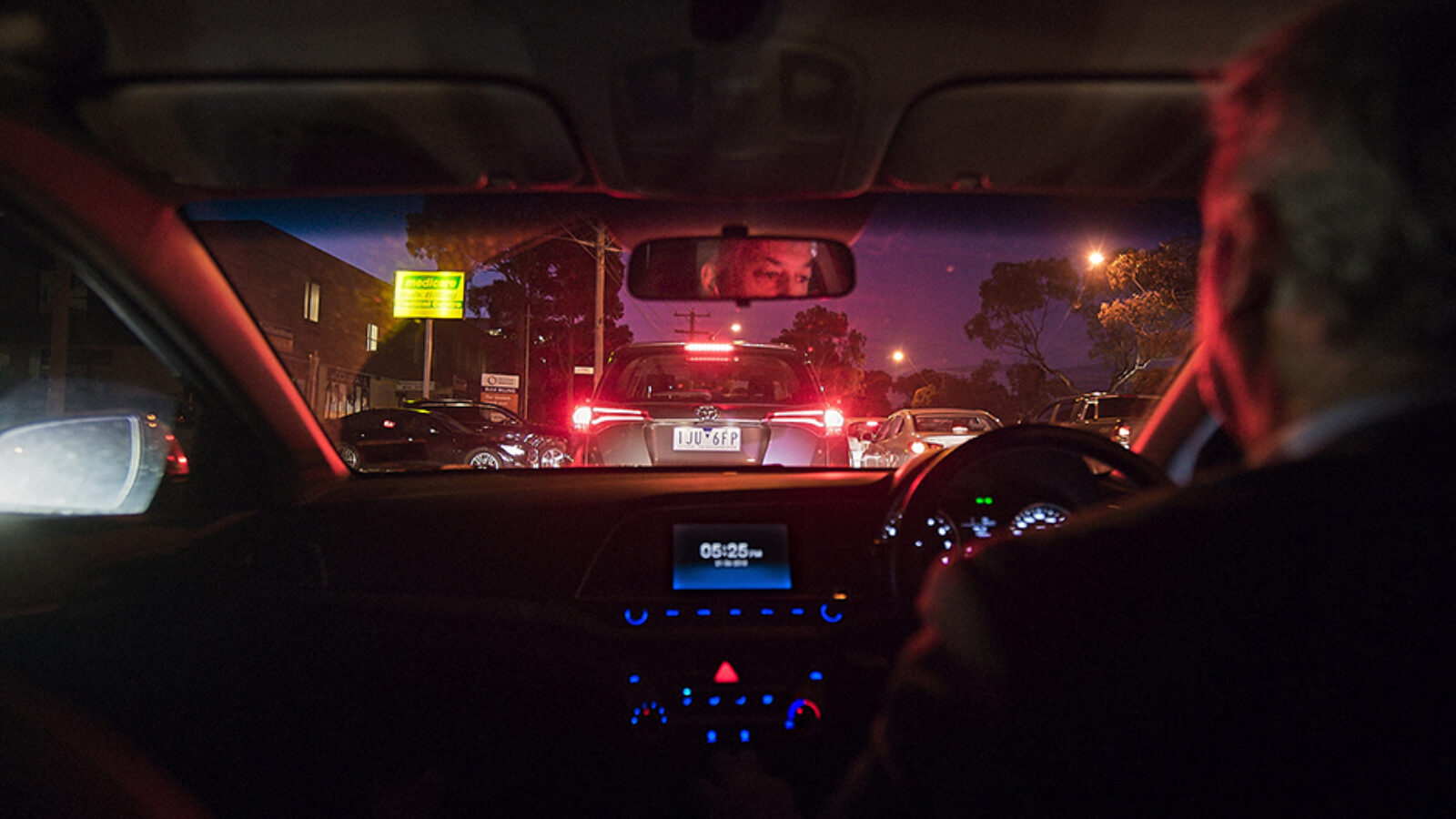Consisting almost entirely of a single camera angle and long stretches of either silence or mundane conversation, The Plains makes for a particularly challenging—but incredibly unique—example of slow cinema. While its premise may seem almost too minimalist for its own good, the way the film is set up immediately draws us toward how distant people in the present day can be to each other despite our urbanized society. Stuck in this car with these two characters, one becomes hyperaware of how things are both moving too quickly and too slowly, and how so much of life is made up of the in-between moments. The film's fiction elements eventually break the docudrama illusion a little too bluntly (mainly through some suspiciously structured dialogue), but by then one should be too invested to want to get off.
Synopsis
At 17:00 every day, Andrew, a middle-aged man, drives home from work through Melbourne’s outer suburbs in peak-hour traffic. Occasionally, he offers a lift home to a younger colleague, David. Over a year, their tentative small talk gives way to a warm friendship and open conversation within the confines of the vehicle, incrementally revealing their lives.
Storyline
Somewhere in Melbourne, a man sticks to his routine of driving home from work, sometimes with a coworker, sometimes not.
TLDR
Small talk that turns into oversharing while stuck in traffic—the most relatable movie of all-time.
What stands out
It's admittedly difficult to pinpoint one part of the film's three hours that stands out most; due to the nature of the film's storytelling, The Plains can't help but begin to feel like white noise. But in a way that's part of what makes the movie unique: maybe one isn't meant to pay attention to every single detail from the backseat of this car. Maybe riding along in transit with these two men and sticking around until wherever they arrive is more important.



